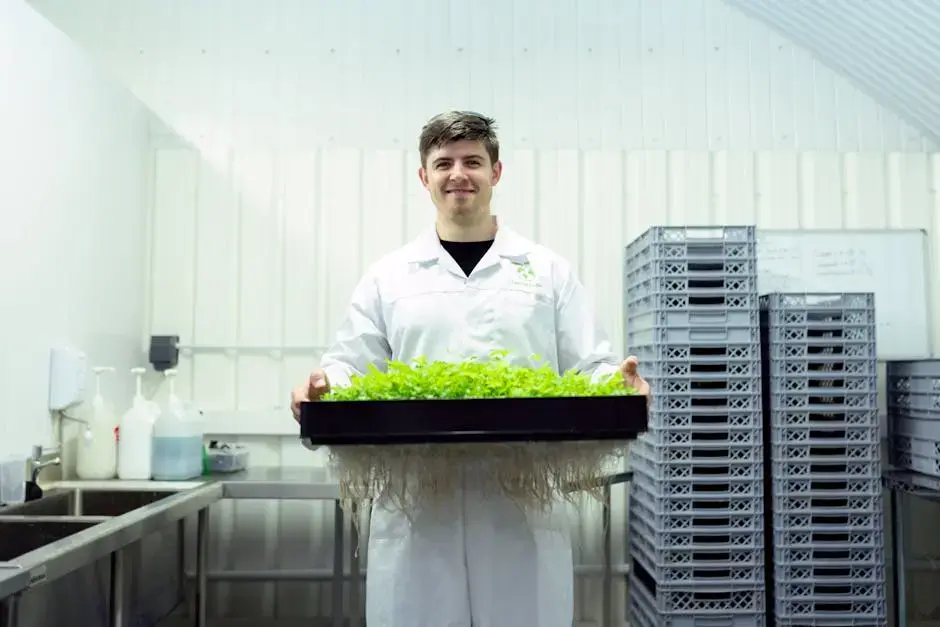How Efficient Energy Can Transform Grow Operations
- Cogen Grows
- Jun 19
- 4 min read
In today's fast-paced world, businesses are constantly looking for ways to improve their operations while reducing costs. One avenue that is gaining momentum is the use of efficient energy solutions. This blog will explore how embracing efficient energy can not only enhance grow operations but also contribute to a more sustainable future. Let's dive into the benefits and strategies for integrating these practices into your operations.

Understanding Efficient Energy
Efficient energy refers to systems and practices that use less energy to perform the same task. Understanding the principles behind efficient energy is crucial for transforming operations in any industry, including agriculture and horticulture.
At its core, efficient energy embodies the idea of maximizing output while minimizing input. This concept isn't just applicable to large-scale operations; it can be integrated into smaller grow spaces as well. By learning how to effectively manage energy consumption, growers can significantly reduce waste and costs.
Moreover, embracing efficient energy practices leads to not just economic benefits but also environmental ones. For instance, less energy consumption means reduced greenhouse gas emissions, contributing to a healthier planet. It's a win-win scenario that every grower should consider.
The Impact of Energy Efficiency on Grow Operations
Implementing energy-efficient practices can drastically reduce operational costs. From using LED lighting to optimizing water usage, energy efficiency positively impacts the bottom line and operational performance.
Let's delve deeper into specifics. For example, adopting LED technology can lower energy usage by up to 70%, translating to substantial savings on electricity bills. This shift not only lightens the financial load but also yields better quality crops, heightening profitability further.
Similarly, optimizing water usage through efficient irrigation systems can lead to dramatic reductions in waste. This not only saves resources but also improves crop yield, underscoring the common thread that links cost efficiency with the vitality of operations.
It's important to think about these benefits holistically. Investing in renewable energy sources, such as solar panels, can lead to significant long-term savings, all while reducing your carbon footprint. Energy efficiency isn't just an operational improvement; it’s a strategic necessity.
Technologies Supporting Efficient Energy Use
There are a variety of technologies available that help improve energy efficiency, such as smart sensors, automated irrigation systems, and solar energy. Each of these can be tailored to fit the specific needs of grow operations.
Let's consider smart sensors: these devices monitor conditions like soil moisture and temperature, allowing for real-time adjustments and reducing overconsumption. By implementing such technologies, growers can ensure that resources are used only when necessary, fostering a more sustainable approach.
Automated irrigation systems, combined with smart sensors, have revolutionized how water is managed in agriculture. By responding to current environmental conditions, these systems can optimize water usage, reducing waste while maintaining healthy crops. This is a perfect example of technology bridging efficiency and productivity.
Additionally, the integration of solar energy solutions can dramatically offset energy costs. As solar technology becomes more affordable, many growers are exploring this renewable resource, ensuring not only a decrease in energy bills but also a positive contribution toward a cleaner environment.
Case Studies: Successful Transformations
Let’s look at examples of companies that have successfully adopted efficient energy solutions. These case studies highlight practical implementations and the resulting benefits ranging from increased yield to lower utility costs.
Take, for instance, GreenFarm, a medium-sized operation that switched to solar energy. By doing so, they reduced their energy bills by 50%, allowing for reinvestment into other areas of the business. This strategic move not only cushioned their expenses but also enhanced their image as a green, eco-friendly business.
Another example is the HydroGrow initiative that employed smart irrigation systems. After installation, they reported a 30% reduction in water usage while experiencing a crop yield increase of 15%. Such direct benefits highlight how efficient practices can yield tangible results across various metrics.
Strategies for Implementing Efficient Energy Solutions
For businesses looking to implement efficient energy practices, there are several strategies to consider. This includes conducting energy audits, investing in renewable energy sources, and engaging staff in sustainable practices. Each strategy can pave the way for lasting improvements.
Conducting an energy audit is the first step to understanding where waste may be occurring. By pinpointing inefficiencies in resource use, businesses can take meaningful steps to rectify these issues. It’s essential to tackle the problem at its root for sustainable change.
Moreover, engaging staff in sustainable practices encourages a culture of efficiency. When employees are involved and educated about energy-saving methods, they can contribute valuable ideas and help enforce these practices on the ground.
Investing in renewable energy sources, although sometimes requiring a significant upfront cost, can lead to remarkable savings over time. A well-planned rollout of such technologies can ultimately transform the energy landscape of any grow operation.
Embracing a Sustainable Future
Integrating efficient energy solutions into grow operations is not just a trend; it's a necessity for businesses looking to thrive in a competitive landscape. With the potential for significant cost savings, improved productivity, and a positive environmental impact, the case for efficient energy is compelling. By adopting these practices, businesses can not only transform their operations but also play a vital role in building a sustainable future.



Comments